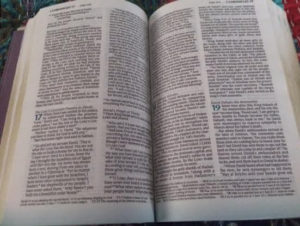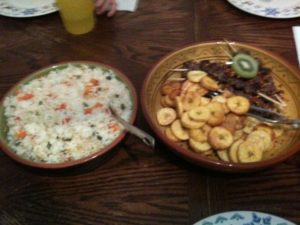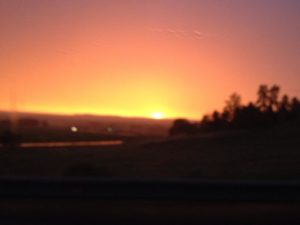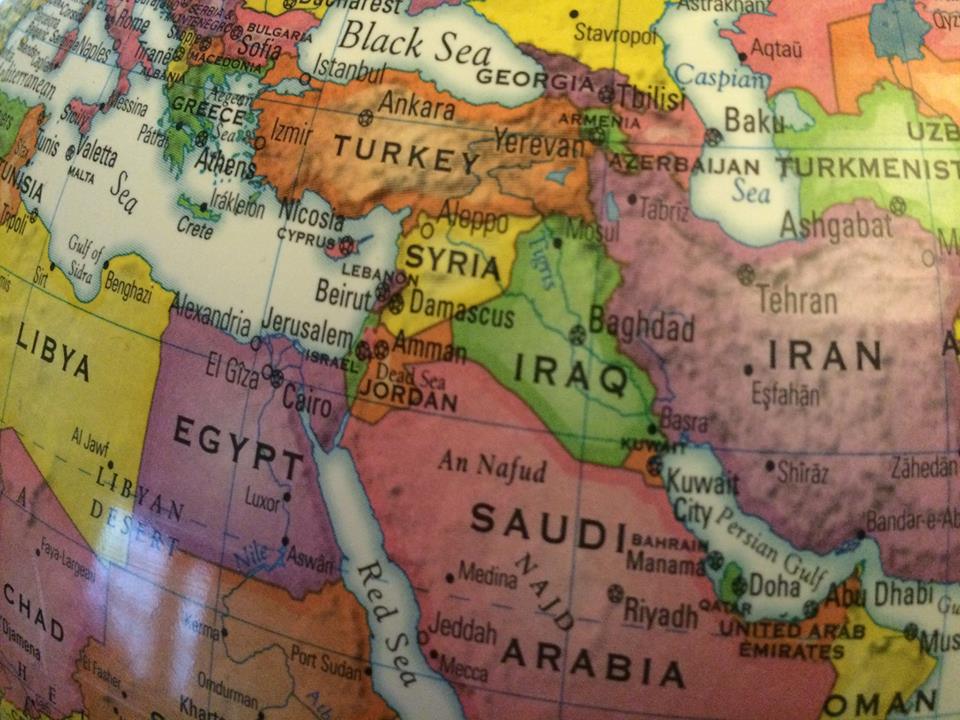We’ve all been through hard seasons. Sometimes those are just dry spells other times severe droughts. Sometimes they are of our own making, but often they are just the result of the natural course of life. Let’s take a look at the life of Elijah and how he found himself in those places and how he left them from more fertile ground. I’ll summarize 1 Kings chapters 17-19, but you might want to read the full story.

1 Kings 17 begins with Elijah declaring a drought on the land of Israel as judgement for King Ahab and the idolatry of the people. After doing God’s bidding, God directs him to the wilderness where a brook will provide him water and the ravens will bring him food. He remains there for a period of time until the result of the drought is a lack of water. God directs Elijah to leave Israel and stay with a poor widow in a neighboring country. As the story continues to unfold, we see the widow sharing her meager food with Elijah and being blessed for her faith. That is until her son dies. Elijah raises her son from the dead, but I am certain in the hours from the point her son became gravely ill and his resurrection, the widow probably felt as if her trust in Elijah and his God was misplaced. The desert season Elijah and the widow faced were not of their own making, and even more than that, both were fully in the will of God. God met their needs in the most basic sense. They were not living in wealth and ease. God’s blessing upon them was simply what they needed to survive, and for the boy, for a time, not even that.

So where does our story take us? After three years, God directs Elijah back to Ahab to end the drought. We meet Obediah, a follower of God, who works in a high position in Ahab’s palace. We learn that while Elijah is being cared for outside of Israel, there are 100 others being cared for within the land by Obediah himself. A side story perhaps, but a reminder that God’s calling to obedience in each of our lives can look different. For some he calls us to stay, for some to leave, for some to work within a corrupt and broken system, and for others to boldly stand against it.
Elijah confronts Ahab in the well known and dramatic story of the prophets of Baal making sacrifices to their God unsuccessfully and ends with the slaughter of the 450 prophets of Baal. Once again, Elijah is fully in the will of God and now he finds himself on the run from Ahab or more accurately Jezebel. The Bible doesn’t tell us if Elijah was suppose to run, but he stops after crossing into the southern kingdom of Judah. There he has a meltdown and prays for death before falling asleep. God doesn’t chasitse Elijah for his lack of faith or shame him for feeling overwhelmed even to a point of wishing his own death. Instead, God ups his food delivery service from ravens to an angel, and Elijah eats, drinks, and sleeps again. Upon awakening he is urged to eat more to regain his strength for a long journey. God provided for the physical needs of Elijah, but also told him the journey would test his limits. He travels for forty days where he ends in a cave on Mout Horeb. Once again he sleeps. Still, his faithfulness is not marked by comfort, ease, or prosperity.
 When God finally speaks to Elijah, He asks him what is is doing here. This seems like a crazy question, as God directed him to this place, but the question isn’t about the location. Elijah pours out his heart. He feels alone and afraid. God doesn’t feed him, instead, here He appears to him as a still small voice that follows a violent storm, an earthquake, and fire. After Elijah sees God, God once again asks him what he is doing there. And once again, Elijah makes the same response. God’s response this time is to send him back to work. No coddling, but a new directive. He appoints him to anoint two new kings and his own successor. God also sets him straight on his wrong thinking. There are other believers, 7000 in fact. Elijah isn’t alone, and if he follows God’s plan he’d going to have a partner very soon.
When God finally speaks to Elijah, He asks him what is is doing here. This seems like a crazy question, as God directed him to this place, but the question isn’t about the location. Elijah pours out his heart. He feels alone and afraid. God doesn’t feed him, instead, here He appears to him as a still small voice that follows a violent storm, an earthquake, and fire. After Elijah sees God, God once again asks him what he is doing there. And once again, Elijah makes the same response. God’s response this time is to send him back to work. No coddling, but a new directive. He appoints him to anoint two new kings and his own successor. God also sets him straight on his wrong thinking. There are other believers, 7000 in fact. Elijah isn’t alone, and if he follows God’s plan he’d going to have a partner very soon.
I think there are several things we can take away from this story.
- Hard times can still come even when you are smack dab in the middle of God’s will.
- Sometimes all God provides is mere sustenance. Sometimes he doesn’t even provide that. Still, we are called to live moment by moment.
- Food and rest are necessities, not luxuries. It’s okay to take time for both.
- The journey can be long and hard, so we must prepare ahead of time.
- We aren’t ever truly alone. Keep your eyes out for others.
- God can handle our raw prayers, our heartfelt cries, our pain, and lack of faith in our own ability to follow him.
- Spiritual nourishment is just as valuable as physical nourishment. We must make it a regular habit to meet with God.
- God does sometimes send destructive storms, shakes the foundations we stand on, and consumes things with fire. Even if he isn’t IN them, he is still the God who sent them.
- Sometimes God sends us back into the hard places before we think we’re ready to go; when we think we have nothing left.
- Companionship can make all the difference. Not the mass of distant others, but the one person (or a few people) you live with in community.
The desert time will not last forever, but it’s real. It’s hard. You have work to do, so take time to meet your physical needs for good food, exercise, sleep, sunlight or whatever else you know you physically need. Be still for awhile. No errands, no chores, nothing productive.
What refreshes you? Do that. Meet with God in prayer and through scripture. Visit with uplifting friends who feed your soul. Have a girls night, call your mom, go on a date. If this painful time is all consuming, you might not feel like you have the time or energy for any self-care, so you might need to get creative. I used to run a group Bible Study in the back of my van (hatch open) in the parking lot of a park while I waited for my daughter at rugby practice. Accept the help of others, be it neighbors, family, ravens, or angles.
You might not feel like God is present, but He is. Hold on to that truth until you can hear his whisper.

